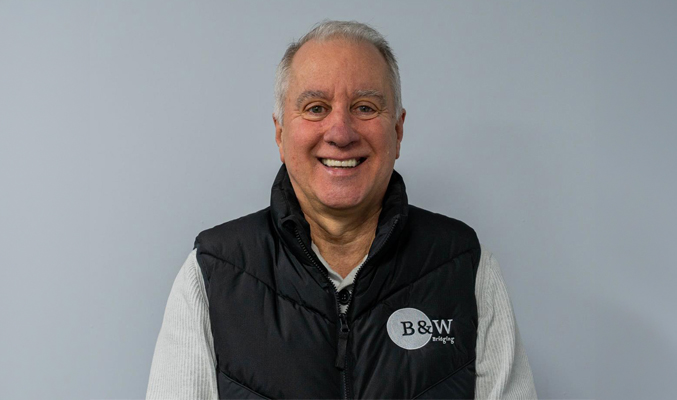Bridging building by degrees
By David Craik

The bridging and specialist lending sector has, thanks to a surging property market, been one of the winners of the pandemic.
Companies are increasingly looking to build on this momentum by tempting more University graduates from a range of disciplines into the industry rather than other areas of banking or finance.
Signature Property Finance is taking on its first graduate hire this Summer as it ramps up growth.
“He will join after graduation and initially be part of the lending support team. It will provide him with a good view of how we function as a business,” explains Signature chief executive Tony Gilbertson.
“We have come through the pandemic supporting clients and growing the loan book, but we need to have an eye on the future.
A graduate brings the enthusiasm and fresh perspective that can benefit everyone here. Often they are unafraid to ask the pointed question that can change the way we do things.”
Aspen Bridging has a long history of employing graduates, but it is also looking to add more. Earlier this month it hired two new graduates – one with a Business Management degree and the other in Law with Politics – into its Underwriting team.
“We have always looked for graduates who understand finance and to give them the opportunity to do something positive with their learning.
There is a lack of experienced bridging people in the Birmingham area which is why we tend to go towards graduates.
We have found them to be very intelligent and able to get up to speed quickly,” explains Head of Sales Ian Miller-Hawes.
“It’s part of our model to hire graduates first although it depends on the role. In my sales team we would be looking for people with sales experience but for underwriting we think the analytical skills of a graduate fits in well. We will look to hire more as we expand.”
Lenders are not just responding to sector growth but a heightened interest from graduates.
Last month Naomi Little, recruitment manager at D&R Specialist Finance, told BLD she had seen more graduates applying for specialist lending roles. “They are not fickle,” she said. “They keep up to date with the market trends.”
Those trends show a general downturn in graduate recruitment. According to High Fliers Research, The Times Top 100 Graduate Employers cut recruitment by 15% in 2020 as a result of the pandemic.
Banking and finance graduate vacancies were down 11.3% last year and are forecast to be down by 10.9% this year.
Gilbertson of Signature says that high street lenders are ‘following the same principle with graduates as they do with their lending and as a consequence there is potential for our sector to also pick up young and enthusiastic talent’.
He adds: “The banks have definitely cut back and with Brexit seeing many shift operations into the EU and away from London, the graduate opportunities appear to have been greatly reduced.
Given the importance of the financial sector and the need for new talent to become involved we need to play our part in developing the next generation.”
John Heffernan, managing director of financial services recruitment firm Coast Partnership, agrees that lenders are stepping up:
“Some of our lenders and master broker clients did stop recruiting graduates in the pandemic but we also had firms who had never hired a graduate before ask us to keep an eye out for students. The demand from the sector will increase,” he states.
He adds that lenders and brokers are increasingly looking for graduates with strong Fintech and communication skills and from a range of disciplines not just finance.
“It is the way the industry is heading. They also want graduates with entrepreneurial spirit so they can launch new funds or products,” Heffernan explains.
So, how should a good graduate scheme work?
Signature has created its programme to be more practical than traditionally seen in finance. “I am determined to give our graduate a hands-on experience of lending in contrast to the sanitised, by the book version more typical of the high street banks,” Gilbertson says.
“They will take a turn in various roles to give them as broad an understanding as possible about the lending process from simple residential bridging loans to more involved development finance deals.”
Enra Specialist Finance, which has also set up its first graduate scheme this year, has taken on 7 graduates in permanent roles with their own development plan and individual mentor.
“We have hired graduates in the past, and they are now valuable members of our team. But we have not run a formal scheme,” explains chief operating officer Stephen Hogg.
“Our headcount shrunk a little bit during the pandemic from 180 to 150. But now that growth is returning we are looking to hire again. Instead of competing in a very crowded market for experienced employees we’ve decided to find younger people and train them up ourselves.”
Hogg says its team took time to decide on how the scheme would operate.
“We asked ourselves can we honestly stand behind this and put the effort in?” he explains. “Because if we didn’t structure it well and allocate sufficient time and resource then the graduates would just come in make some tea and do some photocopying.
That’s not fair. You need to have a training and career progression plan in order to retain them in the medium term. We also haven’t given the programme an end date after say 12 months. There is no trapdoor under their feet. They feel secure.”
Enra looked at doing a rotational graduate scheme but felt it did not have the Human Resources depth to ‘stand behind’ graduates having placements in different roles.
“You need a separate team to organise the rotations. It felt like we would be overcommitting given our size,” Hogg explains. “So, we sent out adverts for specific graduate roles. We’ve got 4 in our lending team, two in finance and one working as operations executive.
They have very clear job descriptions and allocated mentors amongst our longer serving steady heads. We have regular check-ins to ensure they are happy and engaged.”
Hogg is seeing benefits already from the graduates’ ‘energy and enthusiasm’. “Getting some fresh blood in on the ground floor has been great,” he states.
“Their excitement is infectious and they are not pre-conditioned with any industry bad habits. We’ll teach them a few of course but seriously it enables us to teach them our values such as how we treat customers.”
Sabinder Sandhu, head of operations & marketing at Avamore Capital, which has been hiring graduates for analyst roles since 2018, also sees a huge benefit in youthful buzz.
“They are a clean slate and arrive with very raw skills,” she says. “They are still in the frame of mind of learning and are perhaps more open than someone older.”
Avamore has cultivated a relationship with Reading University. “We have run open evenings where we invite candidates to learn a bit more about us,” she explains. “Our whole team are present, and we do small 10-minute interviews to get a sense of each person. It is a very good method of engagement.”
It has an onboarding process which sets 3 month goals and requires ‘check-ins’ to ensure that the graduate is growing and heading in the right direction.
“There are always challenges with hiring graduates as this is the first full time office job they’ve ever done.
We often take for granted the basics of working and so, with graduates, it’s important to make allowances that simple mistakes are likely to happen,” explains Henry Manley-Cooper, Avamore’s head of credit analysis and first graduate hire in 2018.
Clifton Private Finance has also teamed up with local Universities via a third party – the Cardiff Capital Region Graduate Scheme.
“The scheme was created to get more people who study at South Wales Universities to stay here after graduation rather than going to London,” explains Sam O’Neill, senior finance broker at Clifton.
“Graduates go online and apply for vacant positions. They are offered a 6-month placement by the employer with the opportunity of it leading to a full-time contract.”
Clifton has hired four graduates over the last two years as part of the scheme. They start with administrative tasks potentially leading up to lending cases under supervision.
“The downside is that you don’t have someone coming in who is going to hit the ground running and generate income from Day One,” he says. “But it is short-term pain for long-term gain.”
Hogg of Enra says it is keen to hire more graduates.
“I feel sorry for graduates in this present climate,” he says. “Employers are sticking with what they have. But for our market it is a good time to get them in. From a risk management perspective, it is smart to have a pipeline of growth. It’s like having a football Youth Academy. It’s about bringing through loyal talent.”

David Craik is a freelance journalist writing news, feature articles, blogs and guides for national newspapers and magazines. His main areas of interest include finance, property and investments.










You must be logged in to post a comment.